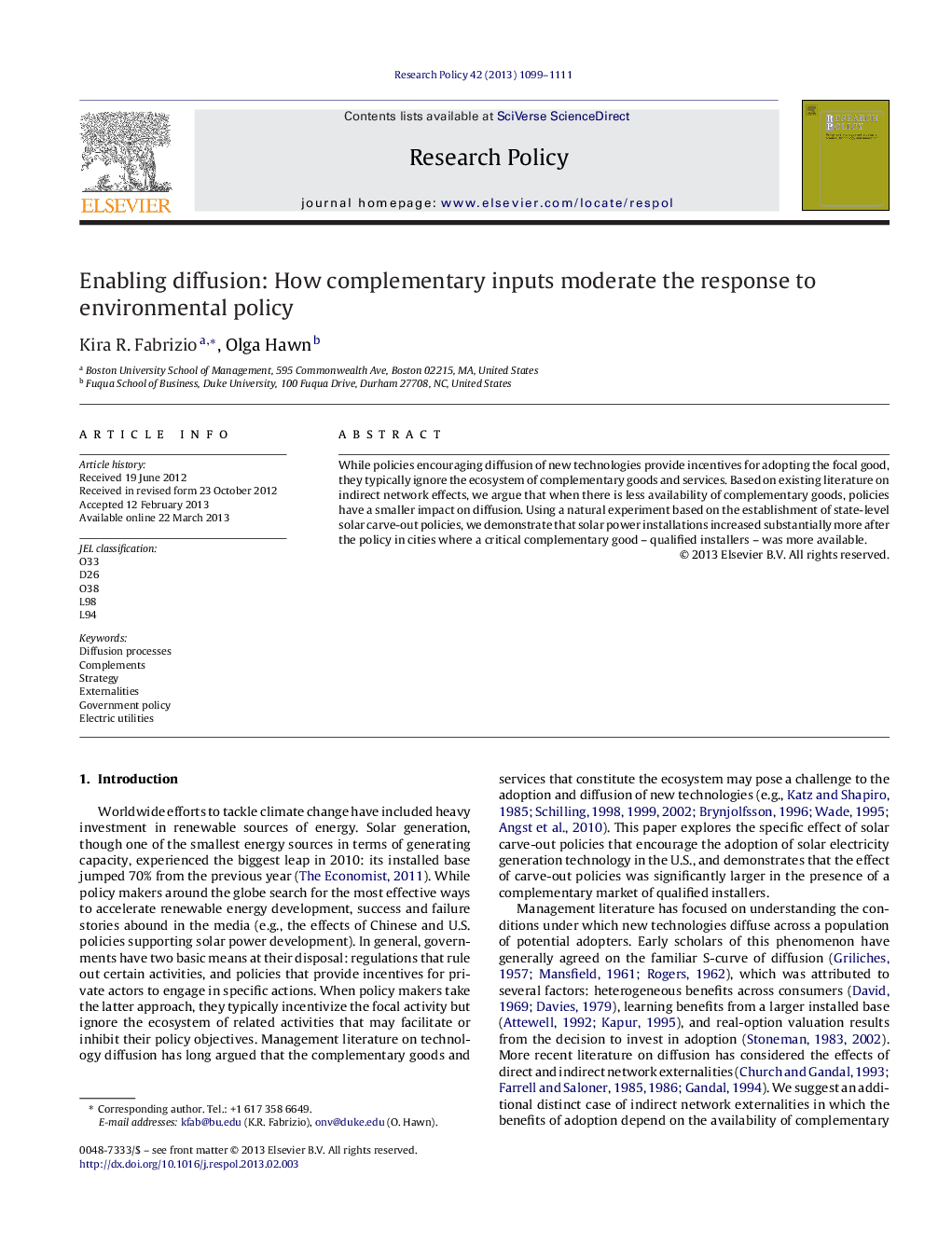| Article ID | Journal | Published Year | Pages | File Type |
|---|---|---|---|---|
| 984650 | Research Policy | 2013 | 13 Pages |
While policies encouraging diffusion of new technologies provide incentives for adopting the focal good, they typically ignore the ecosystem of complementary goods and services. Based on existing literature on indirect network effects, we argue that when there is less availability of complementary goods, policies have a smaller impact on diffusion. Using a natural experiment based on the establishment of state-level solar carve-out policies, we demonstrate that solar power installations increased substantially more after the policy in cities where a critical complementary good – qualified installers – was more available.
► We model the impact of solar carve-out policies on solar PV adoption. ► Our focus is on the moderating effect of the pre-existing number of installers. ► Results show that the policy has a larger effect in cities with more installers. ► Adoption increases three times as much where installers are one st. dev. greater.
